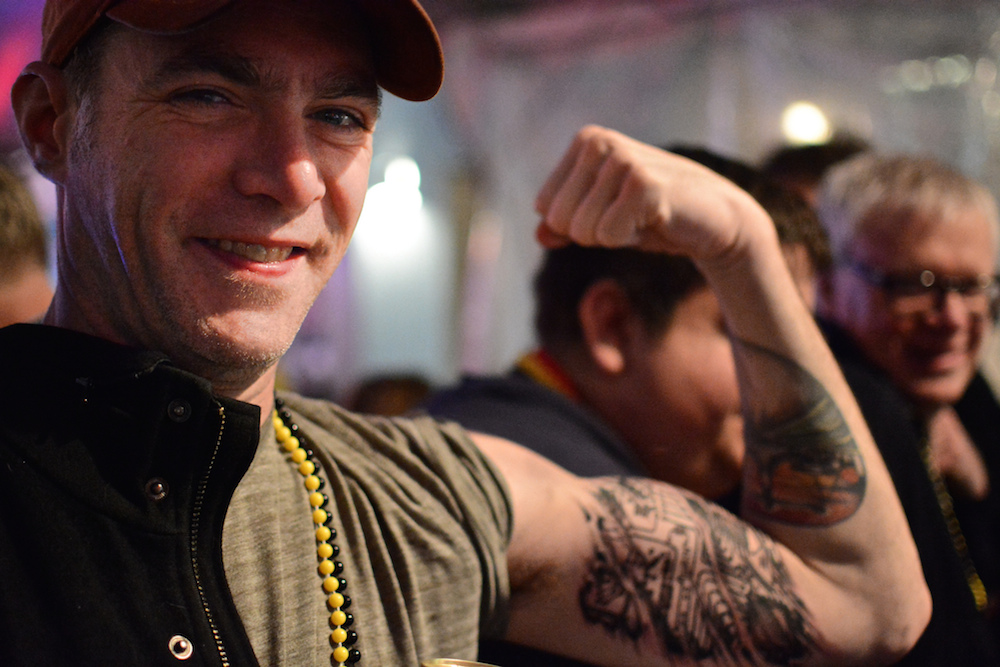When we last caught up with Aaron Brazell, he had just moved back to Baltimore after spending time in Austin and Washington, D.C.
With a talk at Ignite Baltimore #15 (which is part of Baltimore Innovation Week) on the horizon, Technical.ly Baltimore heard from Brazell via email. We reached out for his thoughts on the Baltimore tech scene and the “Fail Fast vs. Hustle Hard” debate.
###
Since moving back to Baltimore, what’s new with you?
Most of the time, since I moved back to Baltimore, I had been gainfully employed by one of the publishing companies in the city. I lost that job back in July and have been back at the freelance grind since then. I’m currently working on a project in New York but have been toying with a few ideas for personal projects. If I ever have time for personal projects.
Can you give us a preview of what to expect from your Ignite Baltimore talk? (Editor’s note: the talk is titled “Gaining Freedom Without a Car.”)
Between public transit, good old-fashioned cycling and a little more planning (with a bit less spontaneity), I am proof that it’s possible to live a more economical and sustainable lifestyle, while enhancing quality of life, relationships and environmental impact.
Baltimore has grown leaps and bounds in the last few years. Do you think that the city is on the right path for success?
I’ve always felt like Baltimore was a strange city. If you look at New York, the center of innovation and entrepreneurship is in Brooklyn and Manhattan. In San Francisco, nobody’s saying, “Hey guys, let’s start a company in Oakland (no offense, Oakland!)” They all want to be in SF. In Austin, the energy comes from the city, and not the surrounding area. In Baltimore, the gravitational center is not the city: it’s Towson, Owings Mills, and Columbia (except, Columbia could just as easily be considered DC).
I think the city, from a public policy standpoint, is risk-averse and doesn’t like making risky bets. We can see this is the general lack of new construction in a very old city (notable exception: Harbor Point). It’s hard to incentivize businesses to open here because we put such a high tax burden, for fear of losing precious tax dollars. Meanwhile, companies are opening their doors all along the 95 and 270 corridors just to have the opportunity to do business in the DC market. Why? Baltimore isn’t giving them reasons to be here.
Hustle hard or fail fast?
Earlier in my career, I’d say hustle hard. Success is something to be sought out, and the harder you work to find it, the more success you will have. A divorce, and several startups later, I think I would approach it from the other side now.
I don’t think that hustle hard is really in conflict with fail fast. From a business standpoint, I think fail fast, fail cheap needs to be in every entrepreneurs lexicon. Don’t wait for perfection. Get a beta out there, solicit and gather feedback and iterate on that feedback, if it makes sense. That way you build something that your most valuable asset — your users — also want and have expressed a desire for, while giving them a seat at the table in terms of product features. You’re also not building something that no one wants, because you’ve taken the time to listen.
Features are like babies: once you have them, you have to support them and can’t just decide not to. I feel that this iterative approach reduces the risk of failure but, sadly, too many entrepreneurs are convinced they have it figured out — and don’t realize it until it’s too late.
—
You can see Brazell and 15 others speak at Ignite Baltimore #15 on Sept. 18. The event is being held at MICA’s Brown Center and starts at 7 p.m.
Before you go...
Please consider supporting Technical.ly to keep our independent journalism strong. Unlike most business-focused media outlets, we don’t have a paywall. Instead, we count on your personal and organizational support.
Join our growing Slack community
Join 5,000 tech professionals and entrepreneurs in our community Slack today!

The person charged in the UnitedHealthcare CEO shooting had a ton of tech connections

From rejection to innovation: How I built a tool to beat AI hiring algorithms at their own game

Where are the country’s most vibrant tech and startup communities?

